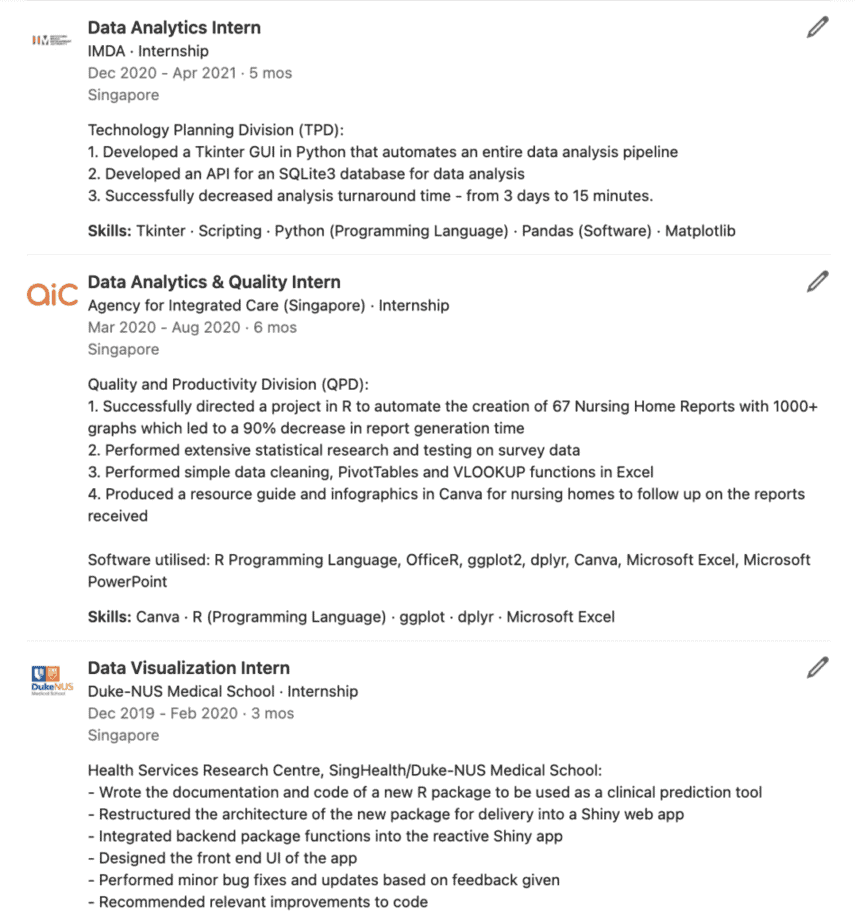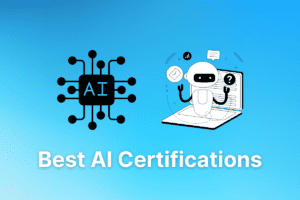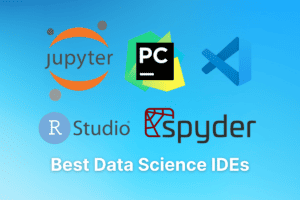How to Get a Data Analyst Internship
We’re reader-supported; we may earn a commission from links in this article.
Are you looking to get a data analyst internship as a student but don’t know where to start?
Don’t worry, I was in the same boat as you while I was just in my final year of university!
In this article, I will divulge all my secrets on how I landed 3 data analyst internships with no experience in a simple 7-step easy-to-follow guide.
I will also be sharing my personal experiences and tips that I learned along the way.
So if you’re ready, let’s dive in!
How to Get a Data Analyst Internship?
1. Review Your Data Analyst Internship Resume
In my opinion, you should begin with your resume.
As a student, you may or may not have classes that have already given you knowledge on how to build your own portfolio, but you should start thinking of this. (even if you’re a freshman or year 1 in your college)
Make sure your resume is up-to-date and highlights all the data analyst skills you have developed, even if you don’t have any formal experience.
Where to find out how to write a good resume, you might ask? You should look to Google or YouTube for information on how to present your resume in a way that employers love when hiring data analyst interns!
Here are a few quick pointers I can give:
- Always write a brief and attractive professional summary (don’t write about your hobbies!)
- List your experience first! (employers love to know what you can do! If you don’t have any experience, list any part-time jobs you’ve done)
- List the rest of the segments in this order: Education, Volunteering opportunities, Awards and Certifications, Skills
You may go to this website where I listed all the skills that I had when I was still a student! I haven’t touched it ever since I landed my healthcare data analyst job.
You can also take a look at my resume from there.
This step is important because it will evaluate how ready you are to take on a data analytics internship.
Once you evaluate what your current skills are, you will be able to compare that with job descriptions later on to grow your skillset.
I’ll cover this in the next step!
2. Look at Data Analyst Internship Job Descriptions and Work on Lacking Skills
Once you have a better understanding of what skills and knowledge you need to land your dream data analyst internship, start having a look at their job descriptions.
You can do this by searching “data analyst internships” on various job boards like Indeed or Glassdoor.
Or simply Google them.
Look through the requirements listed in each job description and compare them with the skills you’ve amassed on your resume.
If there are any skills that you’re lacking, I want you to note them down.
You’re going to want to work on these skills more before you start to even think about applying to any data analytics internship positions!
3. Learn from YouTube, Blogs, Online Courses, and IRL Courses
While many people who are new to data analytics think that it’s a career that only requires technical expertise, I beg to differ!
You actually need to master these 3 broad topics:
- Technical Knowledge (Data visualization software, programming languages, machine learning, statistical analysis software)
- Clear and Effective Communication
- Good Design skills for Data Visualization
Technical Knowledge
Technical theoretical knowledge is actually the easiest skill to learn on your own. I recommend you learn as many technical skills as possible from free online resources.
Even if you’re not a computer science major, it’s fine, because I wasn’t one either. You just need to persevere and pick up all the data analytics skills to be a data analyst.
Once you’re ready for more advanced knowledge, I’d highly encourage you to take up courses, both online and IRL for data analysis. From these data analytics courses, you may learn relevant skills on how to retrieve data from data sources, more on interpreting data, and how to turn them into valuable insights.
I personally took 1 IRL course, 1 online course over Zoom, and 1 online self-paced course with recorded videos. I used these to learn various software such as Tableau and SQL and data science programming languages like R and Python.
These are all necessary skills to become a data analyst intern. But you don’t have to master them all. You just need to develop one or two that will be required in your future data analyst internship.
2. Clear and Effective Communication
This is something that you can still work on while you are in school. Practice this while you’re doing projects related to presenting findings.
As the bulk of data analysts and data analyst interns present their findings very often, you’ll want to master this skill well.
3. Good Design skills for Data Visualization
You’ll need to learn this while on the job when you eventually land your first data analyst internship.
As you receive feedback from others, take into consideration what graphs look particularly clear and which ones take a longer time to comprehend.
The intention is to design a dashboard that will work well for your stakeholders who use it daily or weekly.
To practice for this, of course, you can take up the challenge of thinking about how your dashboards and data visualizations (we call them vizzes) work well to demonstrate the insights you want to present.
This will take practice to perfect, but just be sure to always keep your mind open to learning!
4. Start Working on Data Analytics Projects on Your Own
Once you’ve nailed the skills and knowledge required for a data analyst intern, it’s time to start working on data analysis projects.
Of course, if you’re still in school or have an internship that offers data analytics tasks, this would be great practice.
But if not, don’t worry! You can always find datasets online and use your knowledge to visualize the data. Places where you can find datasets include:
- Kaggle: This is perhaps the best place to find all kinds of datasets: including gaming, beauty, and even romance.
- Singapore’s National Open Data Collection: Singapore releases datasets of data publicly for anyone to access.
- Google Dataset Search: You’ll be able to find all kinds of datasets here with a simple search.
- United States Public Data: The United States also releases datasets relevant to the country for anyone to access
I’ve practiced this many times and it greatly helped to develop my skills as a (now) competent data analyst. Not only that, but I was able to showcase these projects on my resume and portfolio website when applying for internships.
The key is to think of an interesting problem or challenge and then try to create a dashboard that visualizes your findings.
Here are the Tableau Public visualizations I did while I was still a student, my Rpubs account, and my GitHub.
I noticed that employers like to reference all these projects I did during my data analyst interview process. I am positive that these were what helped me land my very first data analyst internship at a local health organization.
5. Take Part in Data Science/Data Analytics Competitions
Next, you’ll want to take part in a data science to data analytics competition, preferably with fellow peers who are interested in data analysis and looking to be a data analyst intern too.
Data Science competitions are a great way to showcase your skills, as you have the opportunity to be judged against some of the best minds in the industry. Not only that, but the projects you work on will also build your portfolio and get noticed by recruiters.
Here, you can find opportunities to make use of machine learning to make cool predictions or data mining skills to demonstrate an important business need.
You’ll also have the chance to learn how to collect data and work with a data team, which are important parts of being a data science intern.
I personally took part in the ASEAN Data Science Explorer competition, where I managed to reach the top 10 teams as a finalist.
Here is the slide deck I used in the competition!
6. Look for Volunteer Opportunities
Volunteering is a great way to gain experience in the data analysis world and get noticed by recruiters.
Here, you’ll be able to practice all the skills you’ve learned during your studies as a data analyst intern. You may even find yourself working with people who have more expertise than you—which is exactly why I volunteered to be an intern (unpaid) in a data science research lab at Duke-NUS Medical School.
The volunteer opportunity I took part in focused on building a web application in R shiny to demonstrate how their data science research helps with risk stratification at the Emergency Department.
This particular experience is absolutely crucial, which is why I have included it as one of the steps.
Why?
That’s because as a student with ZERO experience, you’ll have nothing to even write at all for your resume! And it’s hard to even gain traction to let your experience snowball!
Here’s my advice:
Building up experience as a student is very much like accumulating snow in a snowball. The moment someone takes a chance on you, you’ll have sufficient leverage to apply for the next data analyst internship, then the next.
Before you know it, your resume will have multiple data analytics internships like mine. Of course, this doesn’t undermine the application and prep process to land an internship as a data analyst intern.
It’s definitely something you should look into as it will help your resume shine when you apply for internships.
7. Start Job Hunting
Now you should start job hunting for internships just like any other job search.
You need to have the following ready before you apply for your data analyst internship:
- A LinkedIn page that’s ready for a data analyst or data analyst intern role
- A resume that is written specifically for a data analyst internship
- Recommendations from previous employers or professors (I got mine from my profession from the data science lab I was in!)
Here’s an example of what the data analytics internships I did were about and how I listed them on LinkedIn:

Your data analyst internship resume should have:
- Your education background
- Projects in data science/data analytics that you have done and can talk about during the interview
- Volunteer experiences in data analysis/data science that you have taken part in
- Any previous data analyst internship
The key is to have a few projects that you can showcase in the resume and portfolio website.
It’s also important to make sure your communication skills are up to par, as this is an essential skill for any data analyst intern.
8. Prepare Well for the Data Analyst Internship Interview
Once you have found a potential data analyst internship, it’s time to prepare for the interview.
Research the company, familiarize yourself with its products and do some background research on the interviewer(s).
Make sure you craft a good cover letter with the job title and company in mind.
Practice your communication skills and be prepared to answer questions about your experience in data analysis.
Make sure you are confident in your answers, and that you can clearly explain the projects you have worked on.
It’s helpful to be able to discuss the technical aspects of data analysis in detail.
Be sure to also brush up on other topics such as market trends, company-specific technologies, and industry news so that you can demonstrate an understanding of how the company operates.
At the end of the day, be sure to thank your interviewer for their time and make it clear that you are very interested in the position.
Good luck! With these 8 steps, hopefully, you’ll get your dream data analyst internship with no experience at all!
By following these steps, you will have
Is it Difficult to Land Data Analyst Internships?
It is not difficult to land data analyst internships!
Landing a data analyst internship might seem intimidating for first-time applicants.
But if you have the right skill set and enough experience, there is absolutely nothing stopping you from landing an opportunity.
Take your time to research the company, its culture, and the type of work it does before applying. Then make sure that the practical skills you list on your resume and portfolio website match what the company is looking for.
Finally, use any connections or networks you have to reach out to and let them know about your interest in their data analyst internship.
Be proactive and don’t be afraid to network with professionals who can give you some insight into the industry.
Is Data Analysis Difficult to Learn?
Data analysis is not difficult to learn. If you have a good understanding of the fundamentals, such as statistics and mathematics, then it’s relatively easy to pick up.
Start off with basic concepts like descriptive analytics, linear regression, data mining, and machine learning. Once you feel comfortable with these topics, you can move on to more complex ones like deep learning, and big data analytics tools.
Why You Should Apply for a Data Analyst Internship?
Data analyst internships are a great way to gain valuable experience and skills in the field of data analysis.
You will learn how to work with datasets, build models, and analyze data for complex problems. Not only is this transferable to your future career in data analytics, but you can also use these skills for other industries.
Not forgetting you’ll also draw a higher salary than most other fresh graduates in your major (like me!).
I’d like to think that working in a tech role helps you have a higher potential because you’ll be learning in-demand skills such as programming languages, how to build your own machine-learning models, etc.
What Is Expected of a Data Analyst Intern?
As a data analyst intern, you will be expected to work with a team on projects such as collecting and organizing data, building models, analyzing trends, and creating reports.
You should also have an understanding of the various software tools used in the industry such as SQL, Python, or R.
You’ll need to demonstrate an understanding of data analysis techniques and be able to explain your findings in a clear, concise manner. These will require soft skills such as teamwork.
Other than that, you should also be comfortable working with large amounts of data, be comfortable with maintaining databases, and have the ability to think critically about complex problems.
Finally, it is important to show an eagerness to learn new technologies and methods for analyzing data.
What is the difference between a data analytics internship and a data scientist internship?
Data analyst internships involve analyzing existing data to identify trends, solve problems or create visualizations.
They may involve building predictive models, but this is usually secondary to the analysis of existing data.
Data scientist internships, on the other hand, involve more complex tasks such as designing statistical techniques, deep learning models, and algorithms to analyze large datasets; creating machine learning models; and developing natural language processing applications.
Data scientists also design experiments to test hypotheses and assess their accuracy by interpreting results and making recommendations based on their findings. They need a deeper understanding of mathematical concepts as well as coding languages like Python or R.
Final Thoughts
There you go! That’s all the steps I took to get a data analyst internship.
If you’d like to find out more about my journey to becoming a healthcare data analyst, read this article!
I hope this article has helped you learn how to get data analyst internship opportunities for yourself! 🙂
All the best in finding a data analyst internship and ultimately finding a data analyst job for yourself!
You can also always contact me to find out more.
Thanks for reading and all the best for your data analyst career path!

Justin Chia
Justin is the author of Justjooz and is a data analyst and AI expert. He is also a Nanyang Technological University (NTU) alumni, majoring in Biological Sciences.
He regularly posts AI and analytics content on LinkedIn, and writes a weekly newsletter, The Juicer, on AI, analytics, tech, and personal development.
To unwind, Justin enjoys gaming and reading.



